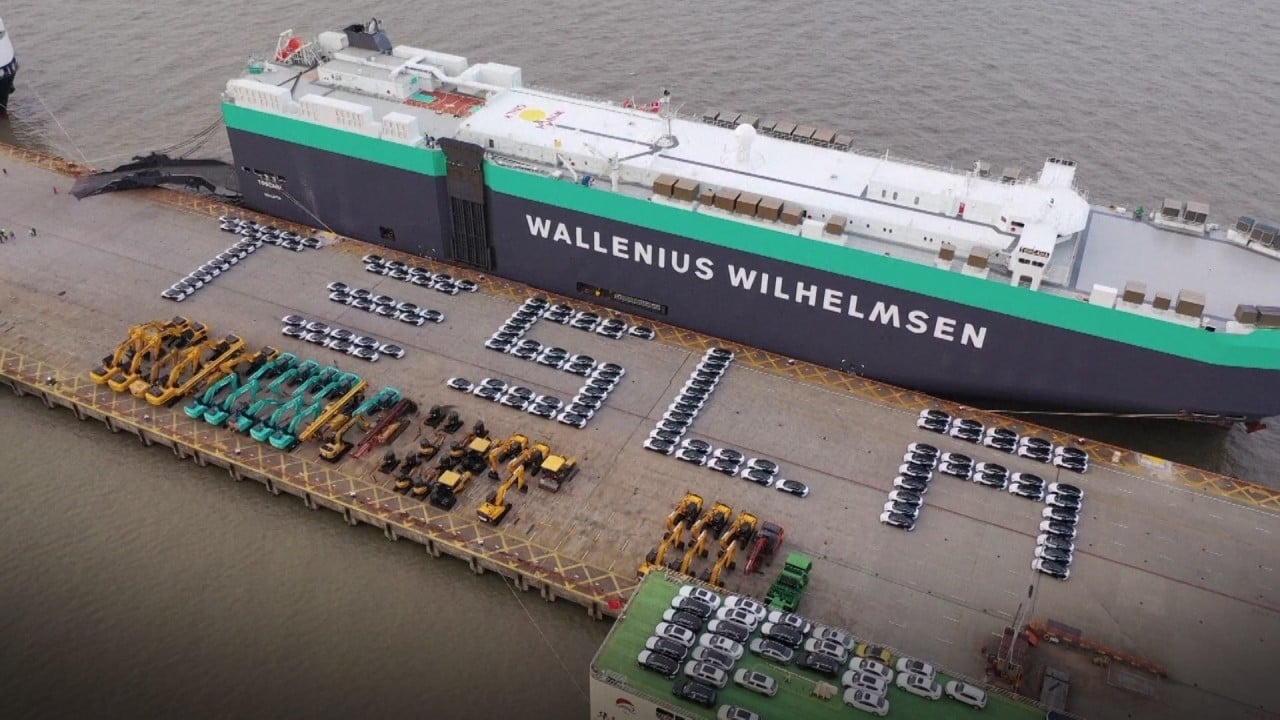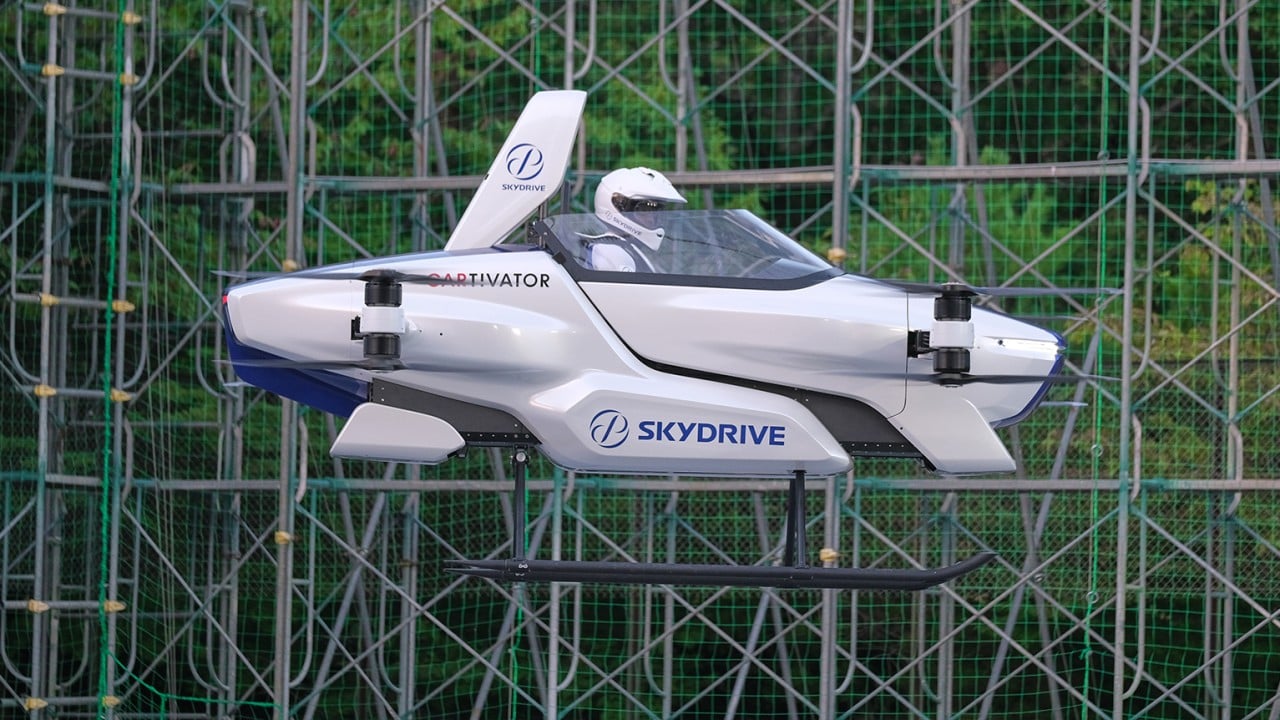
Chinese EV bellwether Xpeng saw fourth-quarter sales soar to a record high before Tesla slashed price of its Model Y
- The Guangzhou-based carmaker said revenue between October and December soared by a massive 345 per cent from a year earlier to 2.85 billion yuan
- Tesla took the wind out of domestic EV makers’ sails when it knocked 30 per cent off the price of its Model Y at the start of the year
The Guangzhou-based carmaker backed by Alibaba said on Monday that its revenue between October and December soared by a massive 345.5 per cent from a year earlier to 2.85 billion yuan (US$437 million).
It still reported a net loss of 787.4 million yuan, narrower by 21 per cent than 997.1 million yuan in the same period of 2019.
Xpeng was well ahead of its own forecast made in in November, when it predicted quarterly revenues would climb 243 per cent to 2.2 billion yuan.
“Sales in the fourth quarter beat expectations as more wealthy Chinese drivers were convinced that EVs are a good choice,” said independent auto analyst David Zhang in Shanghai.
Xpeng delivered 12,964 vehicles in October to December, quadruple the figure from a year earlier and 51 per cent higher than the previous quarter.
“China’s new carmaking forces will continue to grow fast this year,” said Zhang. “Competition will become fiercer, but the leading Chinese companies are gaining popularity with their premium products.”
However, Chinese electric car start-ups are up against Tesla, the global leader in the field. The American giant slashed the price of its Shanghai-made Model Y sport-utility vehicle (SUV) this year by 30 per cent.
Shanghai-based NIO delivered 5,578 units last month, 22.8 per cent down from sales of 7,225 in January.
Xpeng’s February sales slumped 63 per cent from a month earlier to 2,223 units. Li Auto delivered 2,300 units last month, 57 per cent less than January.
“Initial enthusiasm about the Model Y helped Tesla extend its lead over the Chinese competitors,” said Tian Maowei, a sales manager at Yiyou Auto Service in Shanghai. “But Chinese start-ups have their own advantages because they know exactly what drivers expect in a car and will design the right models for them.”
Xpeng plans to release multiple updates to its XPILOT 3.0 advanced driver-assistance system and auto-parking function this year.
It will also launch a new model within 2021 to vie for a bigger share of the world’s largest automotive market.
“Autonomous or even unmanned driving will be the core reason for consumers to buy a smart car,” said He Xiaopeng, chairman and CEO of Xpeng on an earnings call late on Monday.
He said Xpeng will launch its third EV model supporting Xpilot 3.0 in the second half of this year and will start the delivery in the fourth quarter.
A fourth model equipped with an upgraded version of the autonomous driving system will be launched next year.
“We will strive to diversify our product portfolio to address additional consumer needs and expand our market share,” said He.
He forecast that Xpeng will deliver 12,500 cars in the first quarter of 2021 and generate revenue of 2.6 billion yuan.
Xpeng has updated its production line in its Zhaoqing factory and He said XPeng aims to produce 10,000 cars a month in the facility by the end of this year.
Construction on a production plant in Guangzhou has started, and production there is likely to commence in the third quarter of 2022.
In January, NIO unveiled its ET7 car, which has a stated range of 1,000km on a single charge using a 150 kWh battery.
The three Tesla challengers are among the top beneficiaries of Beijing’s supportive policies, which include cash subsidies and free car licence plates, targeted at encouraging drivers to switch to environmentally-friendly cars.
Morgan Stanley has forecast that Xpeng’s sales could jump 75 per cent annually over the next five years, hitting US$8.7 billion in 2025.
The bank also expected NIO and Li Auto, both of which built premium electric battery-powered cars, to post sales increases and a big improvement in performance.
Under the country’s “Made in China 2025” master industrial plan, 20 per cent of new cars clogging the streets by 2025 will be new-energy vehicles (NEVs), a tag that covers pure electric, plug-in hybrid and fuel cell cars.
That would translate into an additional 4 million such cars on the road by then.
Last year, 1.17 million NEVs were delivered in China, up 12 per cent from 2019.




